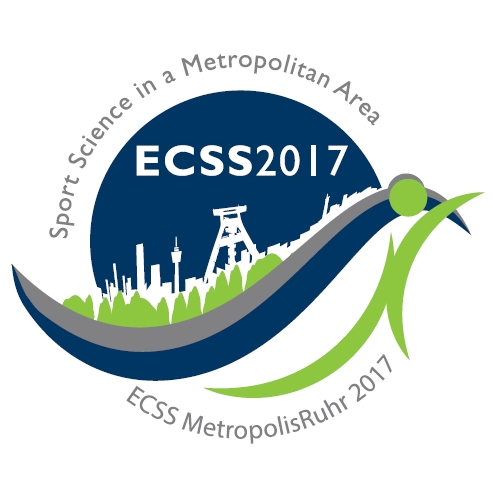Bosio A1, Bizzi M1, Rampinini E1, Riggio M1, Connolly D2, Marcora S3
1,MapeiSport, (Italy); 2,Sport Science Department Juventus, (Italy); 3,University of Kent, (UK)

Introduction Adding cognitive workload to training may lead to improvements in physical endurance and better resistance to mental fatigue (Brain Endurance Training, BET). Before testing these hypotheses in soccer players, we tested the effects of a practical intervention aimed at adding cognitive workload during small-sided soccer games (SSG). Specifically we wanted to investigate whether this intervention 1) reduces the amount of physical work and physiological stress, 2) increases perceived workload and 3) induces mental fatigue. Methods Forty young soccer players took part in this randomized crossover study. On 3 different days participants played 4x4min (4’30” rec) 5vs5 SSG. Passive recovery was observed during control condition (CON) while a 3min demanding computer-based cognitive task was carried out during recovery in experimental condition (EXP). On one occasion both teams were under CON, in the other two cases one team was under CON and the other EXP. Before SSG, motivation, mood and cognitive performance were assessed. At the end of the last SSG mood, subjective workload, cognitive performance, session-RPE were assessed. Physical activity profiles (GPS) and heart rate were monitored; SSG were video recorded for notational analysis of technical variables. Players rated RPE at the end of each SSG. Statistical analysis (ANOVA, t-test) was performed only for CON-CON and EXP-CON combinations. Results The additional cognitive workload during SSG did not significantly affect physical activity profiles, heart rate or technical variables. However, RPE at the end of each SSG (main effect of condition, p<0.001) and session RPE (p=0.031) were shown to be higher in EXP (5.8±1.3 a.u.) compared to CON (5.3±1.1 a.u.). The additional cognitive workload also induced a significant reduction in cognitive performance in EXP compared to CON which indicates a higher degree of mental fatigue. No significant effects of condition were found on other subjective measures of fatigue, workload, and on motivation. Discussion These findings show that performing demanding computerized cognitive tasks during the recovery periods of SSG is feasible, increases perceived workload, and induces mental fatigue. Interestingly, this was possible without any significant reduction in the amount of physical work and physiological stress during SSG. Future training studies should investigate whether this soccer-specific form of BET can induce chronic improvements in physical endurance and resistance to mental fatigue in soccer players. References VanCutsem J, Marcora S, DePauw K, Bailey S, Meeusen R, Roelands B. (2017). Sports Med. Staiano W, Merlini M, Marcora S. (2015). Med Sci Sports Exerc, 47 (5S), 198.
22th Annual Congress of the European College of Sport Science (ECSS).
Essen 5-8, Germany, July 2017